THREAD: ukraine aid
LifeLine™ Media threads use our sophisticated algorithms to construct a thread around any topic you want, providing you with a detailed timeline, analysis, and related articles.
News Timeline

US-UKRAINE POLICY Shocker: Ambassador Quits as Trump Team Demands Results
— Bridget Brink, the US Ambassador to Ukraine since 2022, has stepped down. The State Department confirmed her exit as the Trump administration signals a new direction in dealing with Ukraine.
The White House is now pushing for stronger talks with Russia. Military and economic aid will be used as bargaining chips instead of blank checks. Officials say they want real progress, not endless promises.
A recent minerals deal between the US and Ukraine shows this new approach in action. Trump’s tough stance on trade and law-and-order is shaping every decision on foreign policy.
With Brink gone, America’s role in Ukraine is changing fast. The Trump team wants peace through strength — using smart deals instead of getting stuck in another forever war.

US-UKRAINE MINERALS Deal Ignites Hope for Trump’S Strong Support
— The United States and Ukraine have signed a new deal giving America access to Ukraine’s key minerals. Ukrainian leaders say this version is better for them than past drafts, which would have made Ukraine less of an equal partner. The agreement still needs approval from Ukraine’s parliament.
The deal also sets up a fund to help rebuild Ukraine. Kyiv hopes this will secure more U.S. military aid in the future. A similar agreement almost happened before but was stopped during tense talks with President Trump, Vice President JD Vance, and President Zelenskyy.
Secretary of State Marco Rubio called this week “very critical” for ending the war in Ukraine. Treasury Secretary Scott Bessent said the deal sends Russia a clear message: The Trump administration stands by a free and independent Ukraine.
Ukraine sees this as an important move to keep America as its top ally against Russia’s invasion. Now all eyes are on whether Kyiv’s lawmakers will approve the plan.

BRITAIN’S Bold Military Boost to Ukraine: A Game-Changer?
— Britain announced a major military support package for Ukraine, pledging over $580 million alongside Norway. This aid includes drones, radar systems, and anti-tank mines. The goal is to strengthen Ukraine’s defenses against the ongoing Russian invasion.
Ukrainian Defense Minister Rustem Umerov stressed the need for advanced air defense systems like Patriot missiles. He urged Western allies to supply these systems to shield Ukrainian cities from Russian ballistic threats, noting that such equipment is available among Ukraine’s partners.
Russia holds a strategic edge as the conflict enters its fourth year. Ukrainian officials expect a new Russian offensive aiming to boost their position in ceasefire talks. The situation remains tense with both sides gearing up for possible escalations.
The 27th meeting of the Ukraine Defense Contact Group was held in Brussels, led by Britain and Germany. U.S. Defense Secretary Pete Hegseth was notably absent but joined via video after returning from Panama earlier this week.
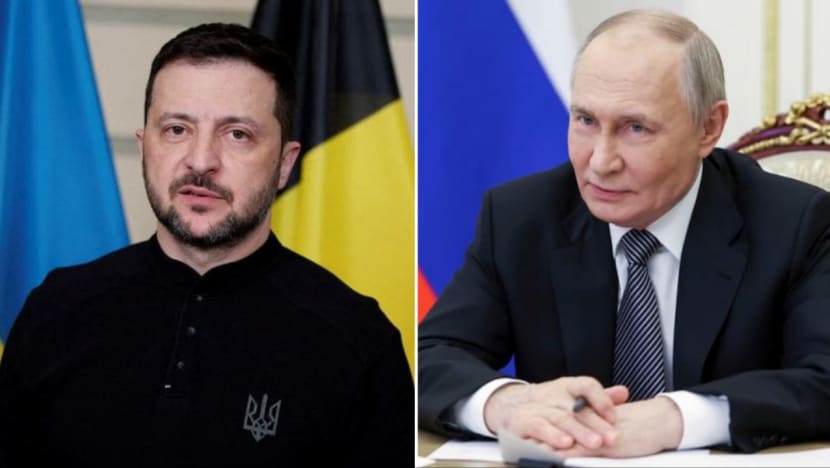
US-BROKERED TRUCE: A Glimmer Of Hope in Russia-Ukraine Conflict
— The United States has brokered a crucial agreement between Russia and Ukraine to stop military attacks at sea and on energy infrastructure. This step is part of ongoing efforts to ease the war that began in February 2022. The truce aims to secure vital shipping routes in the Black Sea, essential for global food supplies due to Ukraine’s role as a major grain exporter.
As part of the deal, the U.S. will push for lifting certain sanctions against Russia. Ukrainian President Volodymyr Zelensky stated that the agreements would take effect immediately without preconditions for sanctions relief, though Russia insists some conditions must be met first. This agreement follows aggressive Russian attacks on Ukraine’s energy infrastructure and retaliatory strikes by Ukraine on Russian oil and gas facilities.
Skepticism remains from both nations regarding each other’s commitment to the truce terms. The U.S. has voiced concerns that Russia might use this agreement as a delay tactic rather than a genuine step towards peace. Despite these doubts, this truce is seen as critical for stabilizing activity in the Black Sea, which has faced significant military and economic disruptions due to ongoing conflict.
Future discussions are expected about halting attacks and whether this truce can lead to more comprehensive peace in the region. This development marks an important moment but leaves many questions unanswered
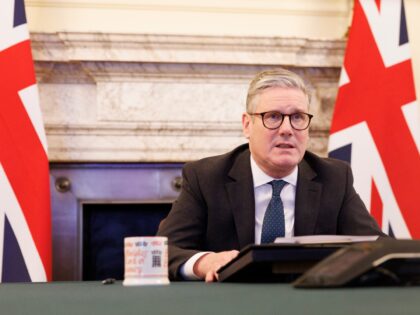
TRUMP vs PUTIN: The Dramatic Ukraine Ceasefire Standoff
— An upcoming virtual summit, led by Starmer’s “coalition of the willing,” will discuss military and financial aid for Ukraine. The meeting will also consider a peacekeeping mission if Russia agrees to talks.
About 25 countries, including European partners and Ukraine, plan to join. Notably missing is the United States, which has changed its stance on the war under President Donald Trump after his recent clash with Ukrainian President Zelenskyy in the Oval Office.
The U.S. proposed a 30-day ceasefire in Ukraine, backed by Zelenskyy but met with conditions from Putin. Secretary of State Marco Rubio expressed “cautious optimism” about Putin’s potential agreement after talks with U.S. envoy Steve Witkoff.
Starmer doubts Putin’s intentions and criticizes his delay tactics regarding Trump’s peace plan. He insists that concrete commitments are needed as Putin continues playing “pointless games” with ceasefire proposals, showing little seriousness about achieving peace.

GLOBAL SUMMIT on Ukraine: Defiant Stand Against Russia
— The upcoming virtual summit, known as the “coalition of the willing,” will focus on military and financial aid for Ukraine. Leaders from around 25 countries, including European partners, Australia, Canada, New Zealand, and Ukraine itself, will participate. NATO and EU officials are also expected to join these crucial discussions.
The meeting follows a U.S. proposal for a 30-day ceasefire in Ukraine that President Zelenskyy supports. Russian President Putin has shown conditional support but wants details clarified before agreeing. U.S. Secretary of State Marco Rubio expressed “cautious optimism” about Putin’s potential backing after meetings with envoy Steve Witkoff.
Notably absent is a representative from the United States due to a shift under President Trump’s administration compared to Joe Biden’s policies. Trump’s recent clash with Zelenskyy highlights this change in strategy towards resolving the Russia-Ukraine conflict through different means than his predecessor used.
UK leader Starmer remains skeptical about Russia’s intentions and stresses that concrete commitments are necessary as Putin engages in what he calls “pointless games” with Trump’s peace plan proposals. Starmer criticized the Kremlin’s disregard for Trump’s ceasefire proposal as evidence of Russia’s lack of seriousness about achieving peace in Ukraine.
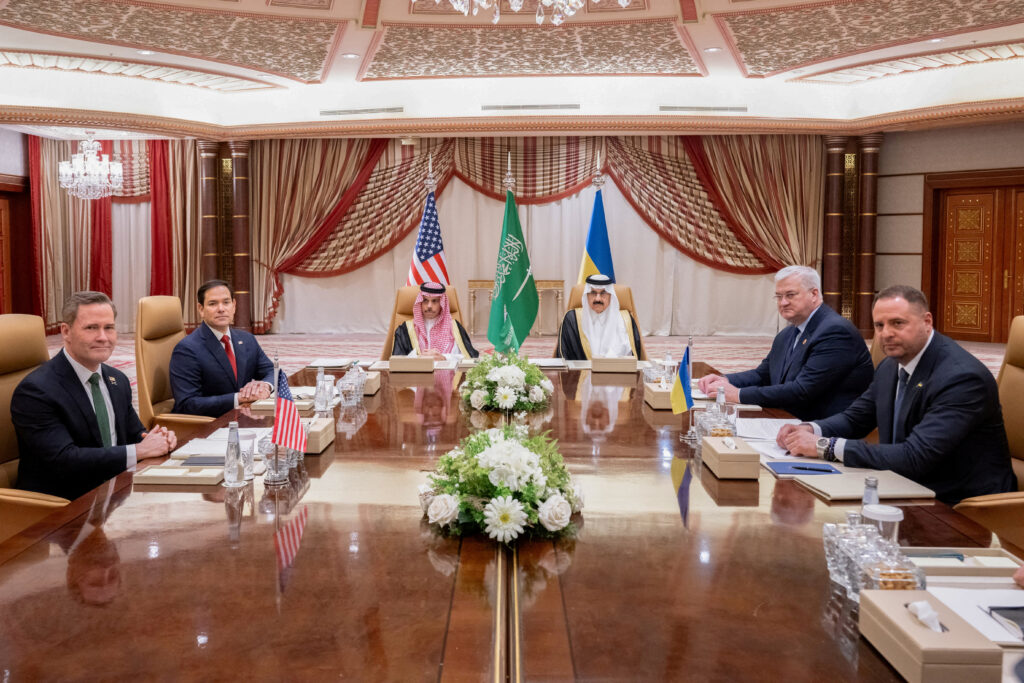
UKRAINE and RUSSIA Ceasefire: A Shocking Step Toward Peace
— The United States will resume military aid and intelligence sharing with Ukraine. This decision follows recent talks in Saudi Arabia. Kyiv is ready to accept a U.S. proposal for a 30-day ceasefire with Russia.
This marks a big change in the ongoing conflict between Ukraine and Russia. The proposed ceasefire aims to lower tensions and open the door for more diplomatic talks. Both countries have been locked in long hostilities, affecting regional stability.
The agreement highlights the U.S.'s commitment to supporting Ukraine against Russian aggression. Military aid is vital for Ukraine’s defense, while intelligence sharing boosts strategic abilities. This move could lead to more comprehensive peace talks soon.

UKRAINE’S Shocking Move: US Ceasefire Plan Accepted
— Ukraine and the United States announced a major development on Tuesday. After discussions in Saudi Arabia, Ukraine agreed to a U.S. proposal for a 30-day ceasefire with Russia. This decision comes as the U.S. resumes military aid and intelligence sharing with Kyiv immediately.
The joint statement from both countries highlights their cooperation amid ongoing tensions with Russia. The ceasefire aims to provide a temporary halt in hostilities, allowing diplomatic efforts to take center stage.
This move is seen as a strategic step by the Biden administration to stabilize the region temporarily while exploring long-term solutions. Critics argue that such measures may only offer short-lived relief without addressing deeper issues in Eastern Europe.

UKRAINE CEASEFIRE: US Backs Peaceful Hope In Russia Conflict
— The United States will restart military aid and intelligence sharing with Ukraine. This decision comes after talks in Saudi Arabia, where Kyiv accepted a 30-day ceasefire proposal from the U.S.
This move aims to ease tensions in the ongoing conflict with Russia. The joint statement highlights cooperation between the U.S. and Ukraine to stabilize the region and explore peace options.
The agreement is a crucial step towards potential resolution, though challenges remain as military actions continue in the area. Both nations express hope for a peaceful outcome through this temporary truce.

US RESUMES SECURITY Support to Ukraine: A Bold Move for Peace
— The United States will restart military aid and intelligence sharing with Ukraine. This decision comes after Kyiv showed it is ready to accept a U.S.-proposed 30-day ceasefire with Russia.
This action is part of a larger diplomatic plan to stabilize the region amid ongoing tensions. US officials emphasize how crucial this aid is for Ukraine’s defense and regional stability.
Both countries are in talks to reduce conflict and find lasting peace solutions. Restarting support marks a big step in US-Ukraine relations during these tough times.
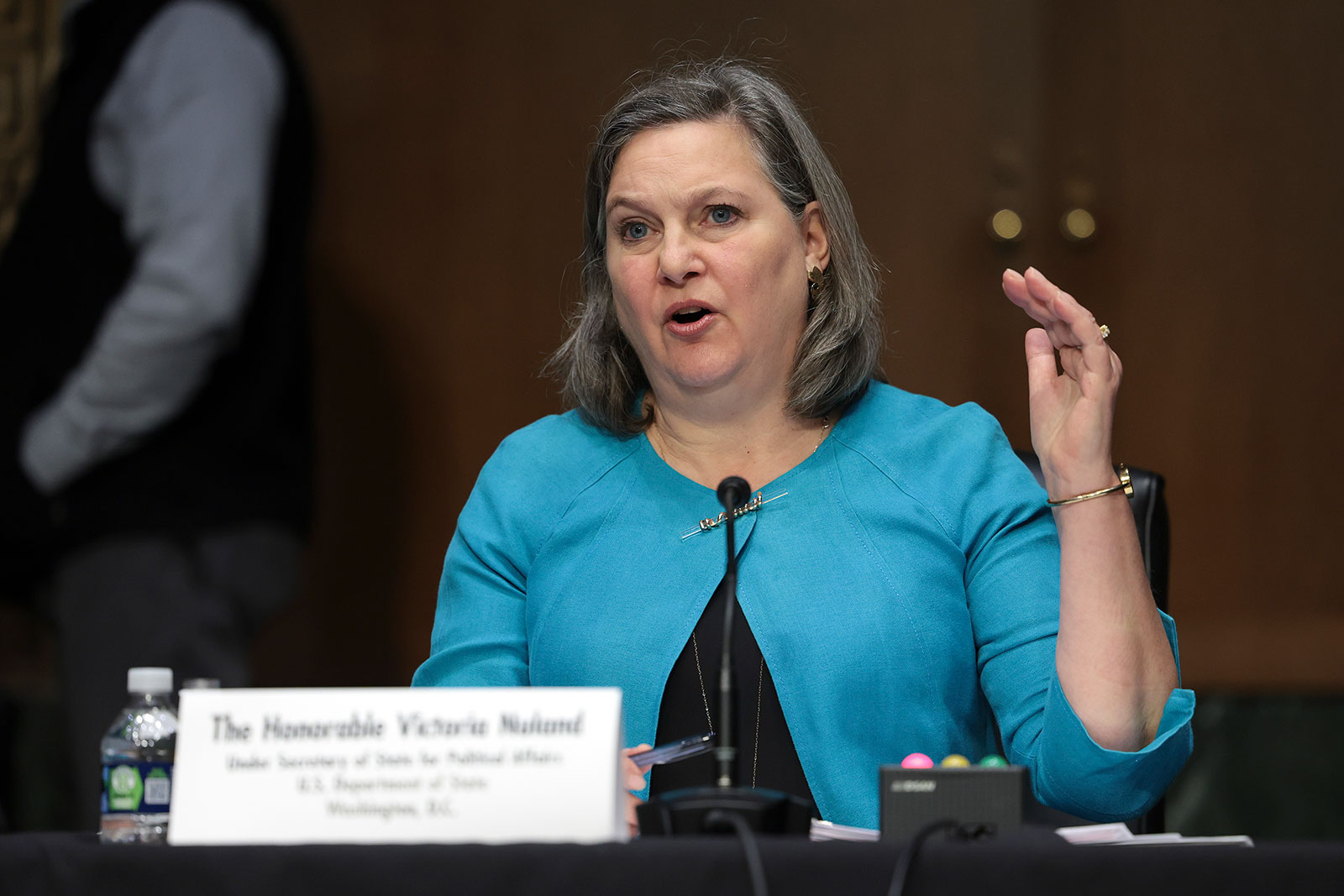
US RESTARTS Military AID to Ukraine: A Bold Move Amid Ceasefire Talks
— The UNITED STATES has agreed to restart military aid and intelligence sharing with Ukraine. This decision comes as Kyiv considers a U.S.-proposed 30-day ceasefire with Russia. The announcement marks a pivotal moment in U.S. support for Ukraine amid ongoing conflict.
A joint statement from U.S. and Ukrainian officials confirmed the resumption of security support. The proposed ceasefire aims to reduce hostilities and open doors for further negotiations between the involved parties, signaling a strategic shift in U.S. foreign policy toward stabilizing Ukraine through diplomacy.
This announcement arrives during heightened tensions between Ukraine and Russia, where continued hostilities threaten regional stability. Since the conflict began, the U.S.’s role has been crucial in providing both military and humanitarian assistance to Ukraine, underscoring its commitment to supporting allies against aggression.

US RESUMES MILITARY AID to Ukraine: A Bold Move Amid Ceasefire Talks
— The Trump administration has announced the immediate resumption of military aid to Ukraine. This decision aligns with Ukraine’s openness to a 30-day ceasefire, signaling a potential shift in the ongoing conflict. Delegations from both sides engaged in discussions for several hours, with more talks planned.
President Donald Trump is set to speak with Russian President Vladimir Putin about a possible ceasefire. Ukrainian President Volodymyr Zelensky has been invited back to the White House for further discussions. The Russian Foreign Ministry expressed willingness for continued dialogue with U.S. representatives, sparking hope for a peaceful resolution that respects Ukraine’s sovereignty.
Safety concerns have escalated following a tragic midair collision involving an Army helicopter and an American Airlines jet near Ronald Reagan Washington National Airport in January 2025. All 67 individuals on board both aircraft perished, prompting NTSB investigator Jennifer Homendy to urge the FAA to implement urgent safety measures immediately.
On the economic front, Asian markets are experiencing significant declines amid global sell-off trends impacting investor confidence worldwide. Japan, South Korea, and Taiwan saw market drops of about 2% as part of this broader financial downturn following the S&P 500’s worst day of the year on March 11th.

US INTEL CUTS to Ukraine Spark Fears of Abandonment
— The UNITED STATES has stopped sharing intelligence with Ukraine, causing worry among European allies. President Macron warned Europe to prepare for a future where the US might not be as supportive. This change comes amid the ongoing conflict between Ukraine and Russia.
In response, EU members are holding emergency talks to strengthen support for Ukraine. They aim to address changing dynamics and ensure continued backing for Kyiv in its fight against Russian aggression.
Meanwhile, severe weather during Mardi Gras destroyed a recently rebuilt camp in Plaquemines Parish, Louisiana. Owner Christian Amedee believes a tornado caused the damage, adding more hardship after reconstruction efforts.
In other news, former President Trump issued a stern warning to Hamas about Israeli hostages in Gaza. He suggested dire consequences if civilians held hostages during negotiations in Qatar aimed at resolving the conflict and securing hostage releases.

ZELENSKYY’S BOLD Move: Seeking Trump’S Support with Rare-Earth Deal
— Ukrainian President Volodymyr Zelenskyy plans to meet Vice President JD Vance at the Munich Security Conference. Zelenskyy is eager to strike a deal with former President Donald Trump. He wants to supply the U.S. with rare-earth minerals in return for ongoing support in Ukraine’s war effort.
Zelenskyy also showed willingness for peace talks with Russia, aiming to end the three-year conflict. However, terms for a peace deal are still unclear and varied. The Ukrainian leader stressed the need for solid security guarantees beyond formal agreements due to Russia’s past violations of such accords.
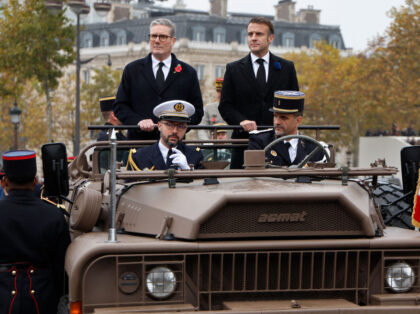
EUROPEAN Allies RALLY to Defend Ukraine as Trump Era Looms
— London, Paris, and Warsaw are forming a core group to support Ukraine against Russia, anticipating changes in U.S. policy under a possible Trump presidency. Donald Trump hasn’t detailed his plans for ending the conflict but has mentioned options like land swaps or demilitarized zones. These strategies clash with Ukraine’s goal of total victory over Russia.
British Prime Minister Sir Keir Starmer met French President Emmanuel Macron in Paris to discuss defense matters and support for Ukraine. They want outgoing U.S. President Joe Biden to allow Ukraine’s use of long-range missiles against Russia before any Trump policy shift. The U.S., however, worries this could escalate tensions with Moscow significantly.
A UK government source stressed the urgency of maximizing efforts before Trump’s potential presidency begins on January 20th. Starmer and Macron aim to strengthen Ukraine’s position as winter nears and after Trump’s re-election announcement days ago, despite financial challenges faced by both the UK and France amid budgetary issues.
Poland, led by Prime Minister Donald Tusks, is also increasing its role in this emerging anti-Trump alliance within Europe. Meetings between Polish leaders and European counterparts are planned to involve NATO members from Scandinavia as well.

— Starmer: Putin Can End Ukraine War Anytime UK Labour leader Keir Starmer asserts that Russia initiated the conflict and can halt it at will, ahead of discussions with President Biden on lifting restrictions on Western weaponry for Ukraine

UKRAINE BEGS for Long-Range Missiles Amid Russian Threat
— U.S. Secretary of State Antony Blinken and British Foreign Secretary David Lammy arrived in Kyiv on Wednesday. Ukraine is urging the West to allow it to use long-range missiles against Russia. The diplomats traveled by train from Poland following a U.S. presidential debate where Vice President Kamala Harris and former President Trump discussed the war in Ukraine.
Blinken accused Iran of providing Russia with Fath-360 short-range ballistic missiles, calling it a “dramatic escalation” of the conflict. For months, Ukraine has been requesting approval to use long-range weapons from the United States and Western allies to strike targets in Russia. Given Russia’s latest reported weapons acquisition, Ukraine is expected to press harder for these capabilities.
“We hope that long-range equipment for strikes on the territory of our enemy will be reached and we will have it,” Ukrainian Prime Minister Denys Shmyhal told Lammy during their meeting in Kyiv. Shmyhal described the meeting as “intense” but provided no further details on his Telegram channel.
At a news conference, he emphasized that destroying military targets or weapons prepared by Russia would enhance safety for Ukrainian civilians and children.

— Zelenskyy to Unveil Ukraine’s 'Victory Plan’ in US This September The Ukrainian president announced that the ongoing military counteroffensive in Russia’s Kursk region, home to a nuclear power plant, is a key component of the strategy
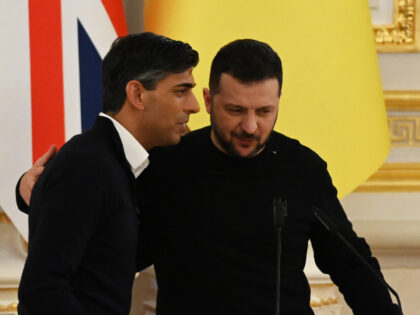
UK’S RECORD Military Aid to UKRAINE: A Bold Stand Against Russian Aggression
— Britain has unveiled its largest military aid package for Ukraine, totaling £500 million. This significant boost raises the UK’s total support to £3 billion for the current financial year. The comprehensive package includes 60 boats, 400 vehicles, over 1,600 missiles, and nearly four million rounds of ammunition.
Prime Minister Rishi Sunak stressed the critical role of supporting Ukraine in Europe’s security landscape. “Defending Ukraine against Russia’s brutal ambitions is crucial not just for their sovereignty but also for the safety of all European nations,” Sunak remarked before his discussions with European leaders and NATO’s chief. He cautioned that a victory for Putin could pose threats to NATO territories as well.
Defence Secretary Grant Shapps emphasized how this unprecedented aid would bolster Ukraine’s defense capabilities against Russian advances. “This record package will equip President Zelenskiy and his courageous nation with essential resources to repel Putin and bring back peace and stability to Europe,” stated Shapps, reaffirming Britain’s dedication to its NATO allies and European security overall.
Shapps further underscored Britain’s unwavering commitment to support its allies by enhancing Ukraine’s military strength which is vital in maintaining regional stability and deterring future aggression from Russia.
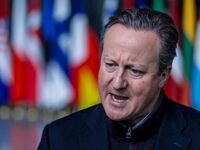
ZELENSKY’S Warning: Support Ukraine or Face Russian Dominance
— Ukrainian President Volodymyr Zelensky has delivered a clear message to the U.S. Congress: without further military aid, Ukraine might lose to Russia. In discussions with House Speaker Mike Johnson, Zelensky will argue against any hesitation in providing the funds needed to fight Moscow’s forces. This plea comes despite Ukraine already receiving over $113 billion in aid from Kyiv.
Zelensky is asking for billions more, but some House Republicans are hesitant. He warns that without additional support, Ukraine’s fight becomes “difficult.” The delay in Congress not only puts Ukrainian strength at risk but also challenges worldwide efforts to counter Russian hostility.
On the 120th anniversary of the Entente Cordiale alliance, leaders from Britain and France joined Zelensky’s call for support. Lord Cameron and Stéphane Séjourné emphasized that meeting Ukraine’s requests is crucial for maintaining global security and preventing Russia from gaining further ground. Their agreement shows how vital U.S. decisions are for international peace and stability.
By backing Ukraine, Congress can send a strong message against aggression and protect democratic values worldwide. The choice is stark: provide the necessary aid or risk enabling a Russian victory that could destabilize global order and undermine efforts to promote freedom and democracy across borders.
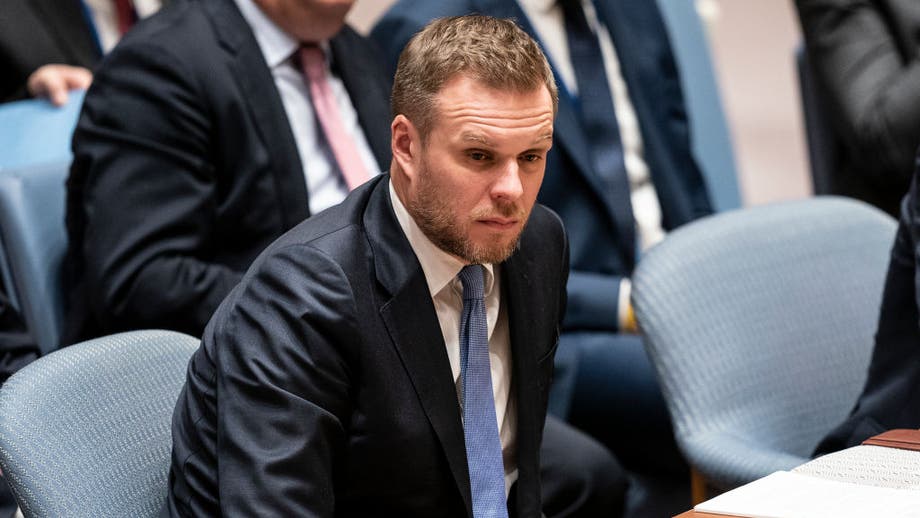
DEFENSE BILL Slashed: Allies Fear for US Reliability
— The House gave the green light to a $1.2 trillion defense bill on Friday, which includes crucial aid for Ukraine. However, the significantly trimmed budget and prolonged delays have left allies like Lithuania doubting the U.S.'s reliability.
The conflict in Ukraine, instigated by Russia, has been ongoing for over two years. While American backing for Kyiv has slightly lessened, European allies stand firm. Gabrielius Landsbergis, Lithuanian Foreign Minister, voiced concerns over Ukraine’s capacity to hold its front line based on the quantity of ammunition and equipment received.
Landsbergis also expressed apprehension about Russia’s potential future actions if Putin continues without restraint. He portrayed Russia as a “massive, aggressive empire with a bloodthirsty nature” that inspires other dictators globally.
This is an incredibly unsettling time," concluded Landsbergis underlining the worldwide repercussions of Russia’s unchecked aggression.

— Ukraine Nears Ammunition Crisis: Air Defense Missiles to Deplete by Month End Reports indicate Ukraine is on the brink of an ammunition crisis, with air defense missiles dwindling to critical levels, risking city defenses by month end

— Ukrainian Children to Speak at UN Security Council on War Losses Amid US Aid Package Delay Young Ukrainians affected by war will share personal stories at the UN in a bid to sway Republicans as US military aid remains in limbo

— Zelenskyy Prepared to Escort Donald Trump to Ukraine’s Front Line: Ukrainian President offers to show former US President the country’s conflict zones
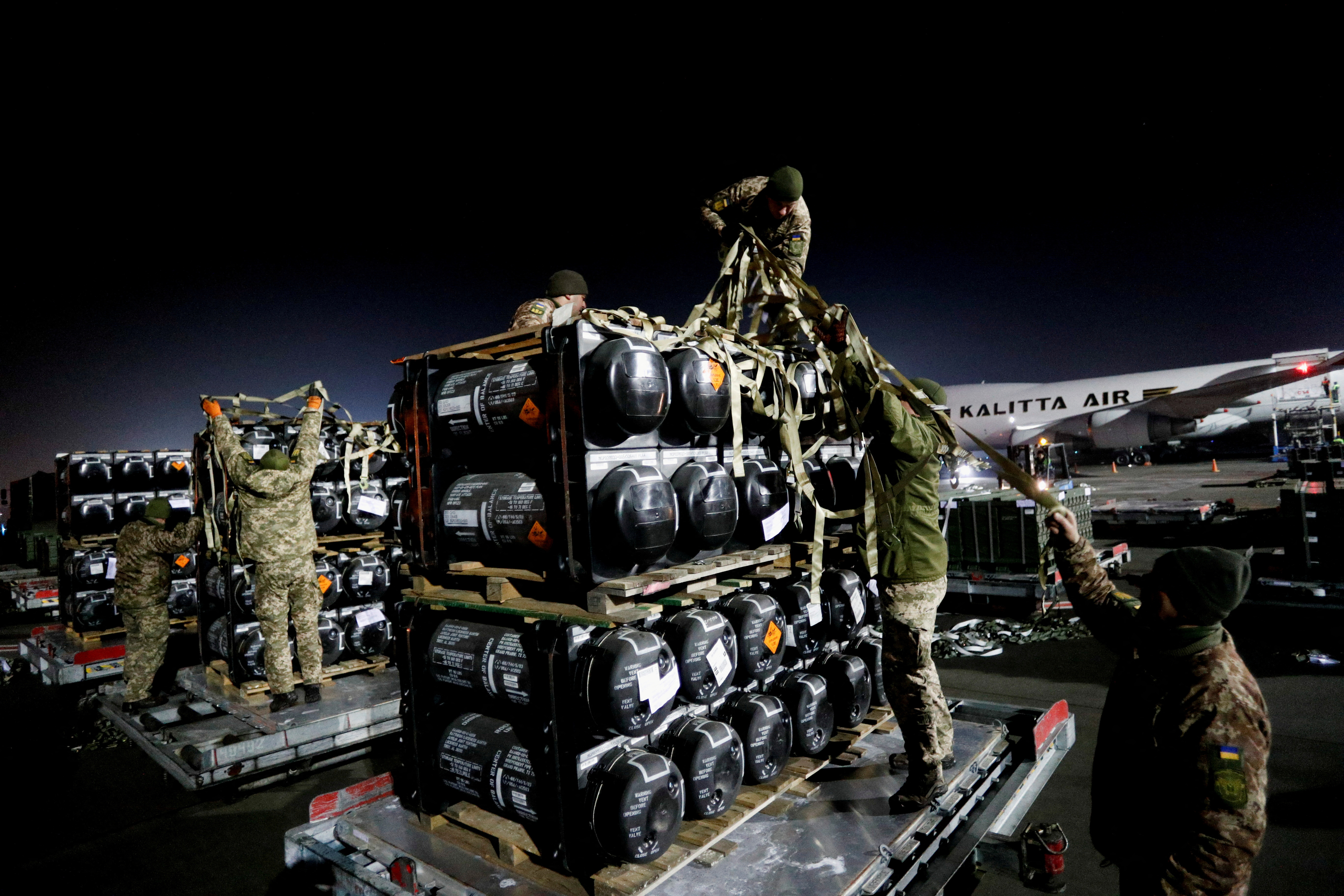
SENATE Triumphs: $953 Billion AID Package Passed Despite GOP Divisions
— The Senate, in a significant move early Tuesday, passed a $95.3 billion aid package. This substantial financial support is destined for Ukraine, Israel, and Taiwan. The decision comes despite challenging negotiations that have lasted months and growing political divisions within the Republican Party over America’s international role.
A select group of Republicans held the Senate floor throughout the night in opposition to the $60 billion earmarked for Ukraine. Their argument? The U.S. should first address its domestic issues before allocating more funds overseas.
However, 22 Republicans joined nearly all Democrats to pass the package with a 70-29 vote count. Supporters argued that ignoring Ukraine could potentially strengthen Russian President Vladimir Putin’s position and pose threats to global national security.
Despite this victory in Senate with strong GOP backing, uncertainty hangs over the bill’s future in House where hardline Republicans aligned with former President Donald Trump are opposing it.

Video
RUSSIAN TREASON Cases Soar Since Ukraine Invasion
— Maksim Kolker received a shocking call at 6 a.m. informing him of his father’s arrest. Initially, he thought it was a scam. His father, Dmitry Kolker, a prominent Russian physicist battling advanced pancreatic cancer, confirmed the grim news himself.
Dmitry Kolker had been charged with treason, a crime that has become increasingly common in Russia since the 2022 invasion of Ukraine. These cases are investigated by the Federal Security Service (FSB) and often involve secretive proceedings and harsh sentences.
The surge in treason and espionage prosecutions has drawn comparisons to Stalin-era show trials. Victims include Kremlin critics, independent journalists, and veteran scientists working with countries considered friendly by Moscow.
Accused individuals are typically held in strict isolation at Moscow’s Lefortovo Prison and tried behind closed doors. Convictions almost always result in long prison terms, highlighting an unprecedented crackdown on dissent under President Vladimir Putin’s regime.

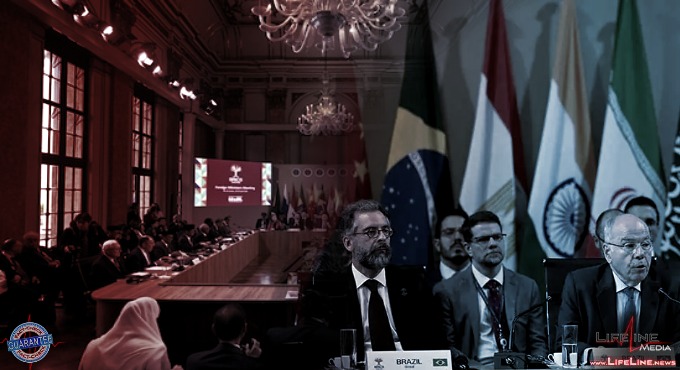
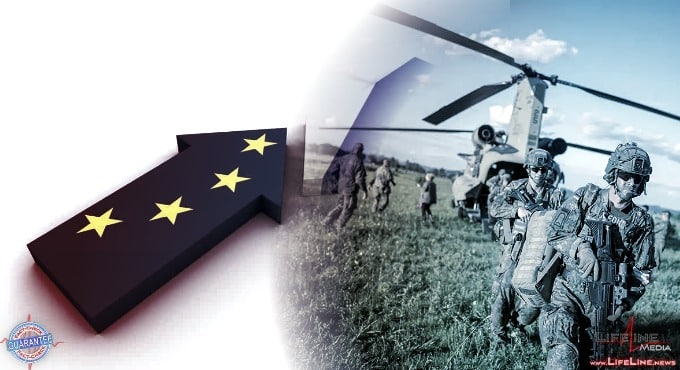
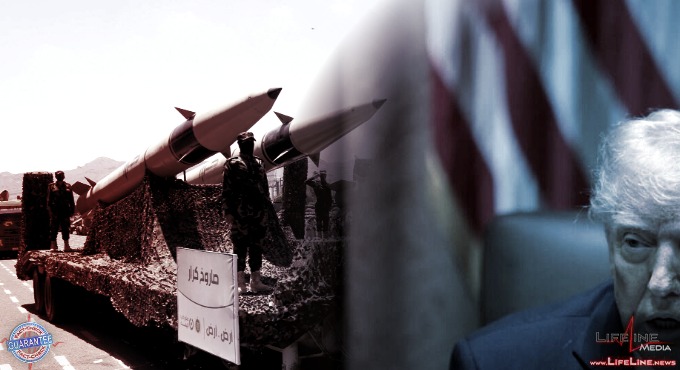
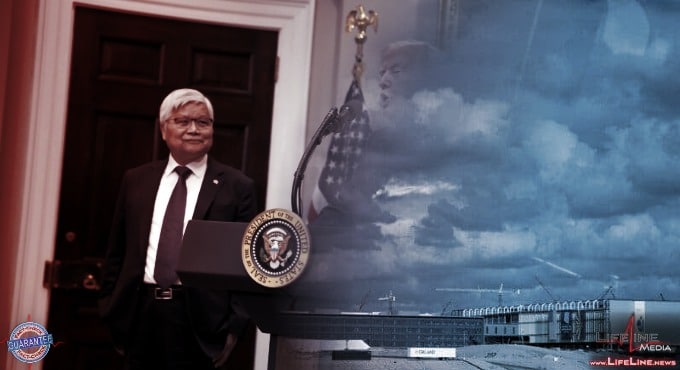
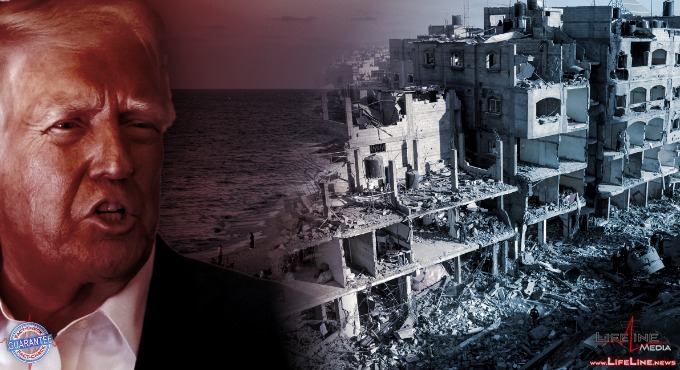
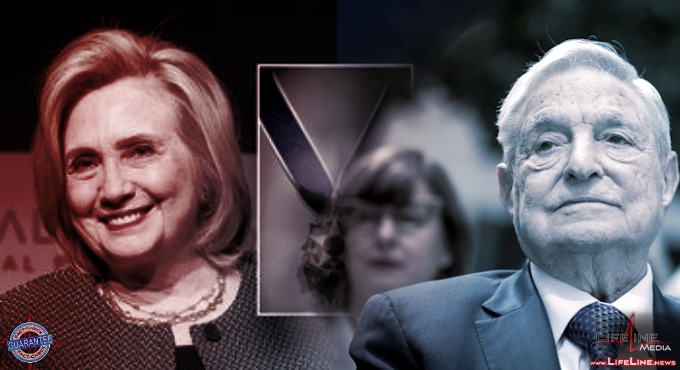
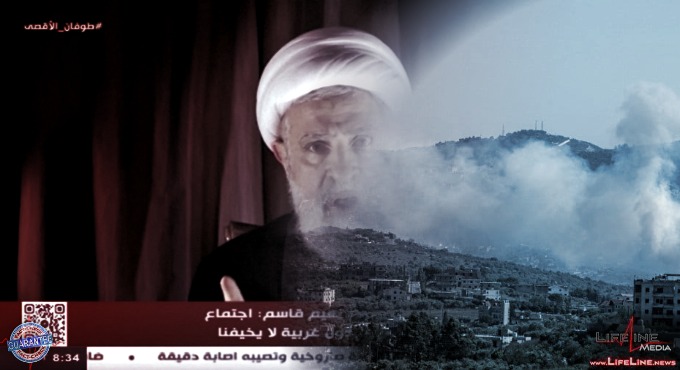
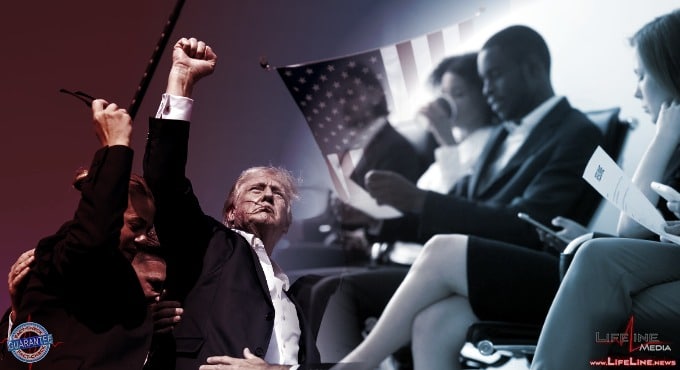
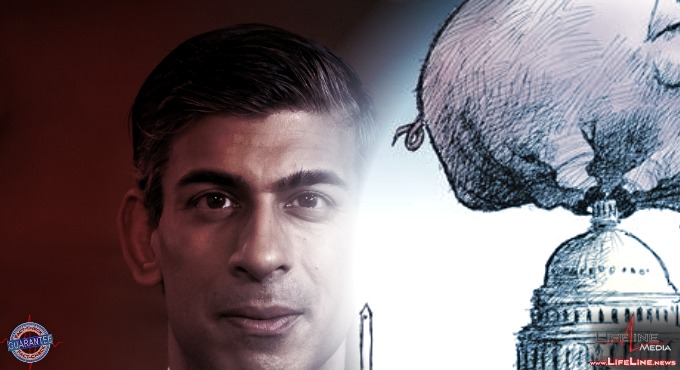



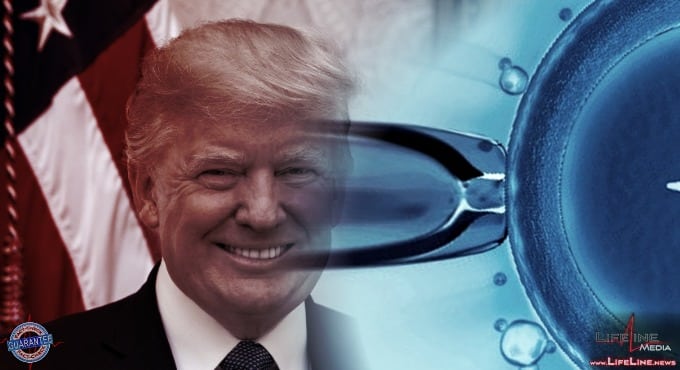

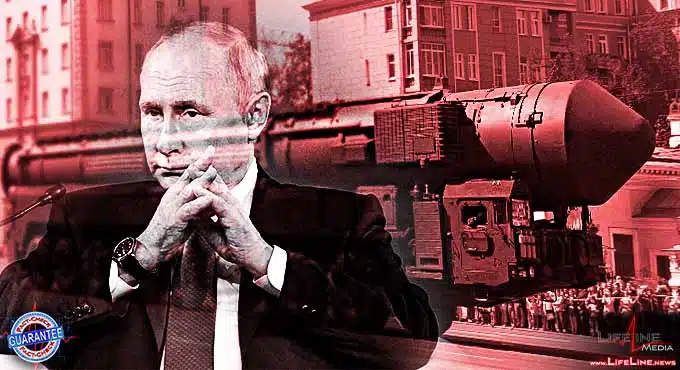
Social Chatter
What the World is SayingCongratulations to the US and Ukraine on a historic minerals deal - committing the US to a “free, sovereign and secure Ukraine.” There is only one man still blocking peace on those terms,...
. . .Putin indiscriminately butchers more Ukrainian civilians, killing and injuring 100 in Kyiv including children. And what is his reward under the latest peace proposals? 1. The right to keep...
. . .Update from Mark and Stephen: the donated vehicle safely reached Ukraine and is now being used by Victoria, a brave Ukrainian combat medic. She gave them a flag signed by people whose lives...
. . .Update from Mark and Stephen: the donated vehicle safely reached Ukraine and is now being used by Victoria, a brave Ukrainian combat medic. She gave them a flag signed by people whose lives...
. . .What a surprise - Putin rejects an unconditional ceasefire. He wants to keep bombing and killing innocent Ukrainians. He wants Ukraine disarmed. He wants Ukraine neutralised. He wants to make...
. . .